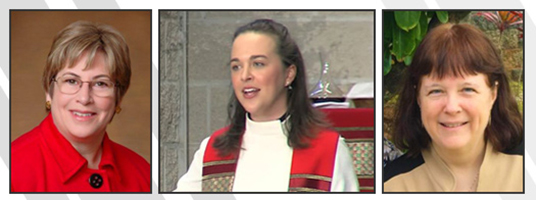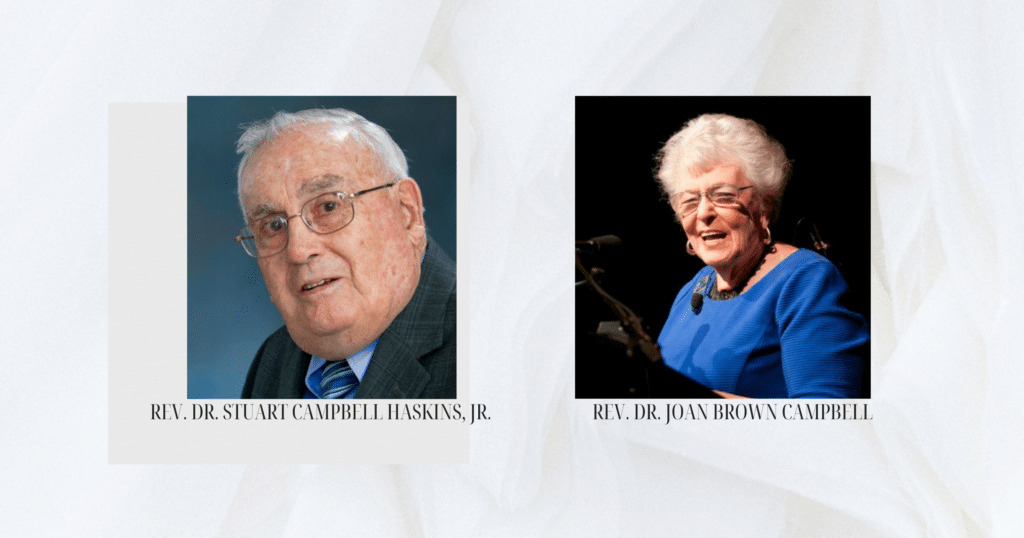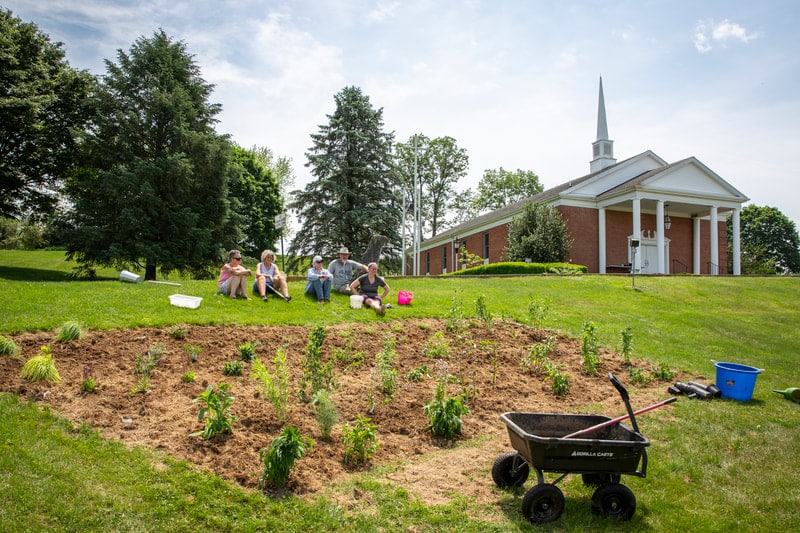Celebrating a wave of women in UCC conference leadership

From L to R: Rev. Deborah Blood, Rev. Anna Humble, Rev. Diane Weible
Spring and summer were seasons of change in conference leadership across the United Church of Christ, with six new conference ministers called, and in that group, a trio of women who are beginning their tenures.
The Rev. Diane Weible took the helm at the Northern California-Nevada Conference and the Rev. Anna Kreisle Humble stepped in as interim conference minister of the South Central Conference (Texas and Louisiana). Nine of the 38 UCC conferences are currently led by female conference ministers. At the beginning of September, when the Rev. Deborah Blood begins as conference minister for the Maine Conference, that number jumps to 10.
It’s a healthy trend that brings diverse views and skills to the leadership of the church, the trio said, and helps the church live into its identity of being inclusive. However, all three women added that there is still work to be done in lifting up the leadership role of women.
“We are the United Church of Christ. We are inclusive and seek to raise up people of all backgrounds and genders to positions of leadership,” Blood said. “It is important that the judicatory leaders [conference leaders] reflect the diversity of the church. Men and women bring different things to leadership, not better or worse, but we lead better with a full representation of humanity — so having people of different genders and colors makes us stronger and a better church.”
Humble added, “One of the things that drew me to the UCC initially was the idea that we are a champion for women’s leadership, and being the first denomination to ordain a woman. We hold this practice dear, but it’s harder to practice I think. Looking at leadership of conference ministers and national leadership, we haven’t entirely reflected that.”
One way women can claim more of those positions, the new conference ministers say, is by going for jobs, even if they don’t feel fully qualified. Said Weible, “I read a study in the Harvard Business Review that women will not apply for leadership unless they feel 100 percent qualified for it, while men will apply and take that risk. I think that may be part of what we are missing — a willingness by women to take the risk even if they don’t feel fully qualified for it. If someone says they don’t feel ready, we need to be bold and ask them to find out if the really are.”
In the church, Weible said, “if women seek a position, it’s because they feel called, so trust that call and don’t doubt their skills, and know that the church needs those gifts and skills.”
Blood and Humble also had advice for women in the church. Blood hopes women seeking positions of leadership will consider conference ministry and leadership in the national setting. “Reach out and explore and participate in the work of the conference and national church,” Blood said. “A lot of how I arrived here was being involved in the national church and conference ministry. Don’t assume you know what skills are needed for it, and don’t assume you don’t have the gifts and skills. There are many more women who are ready for leadership in the church than there are coming forward.”
Humble’s advice to women who aspire to become leaders in the church was direct. “Be strong, and be yourself,” she said.
Humble followed that advice, and the advice of her mentors, when she sought to become the interim conference minister of the South Central Conference. She acknowledged that it was a challenge for the conference to hire not only a female, but a 31-year-old minister with two young children, ages 4 and 2. But her conference, as others, is willing to try something new and hear the perspective of women in the church.
All three women credit their mentors, many of whom were men, for instilling confidence and supporting them as they aspired toward roles of leadership.
“There is no way I would be in those roles had my mentors, and the Holy Spirit, not prodded me into it,” Humble said. “It was my mentors who encouraged me to apply for association positions and conference positions. I believe strongly in the power of mentors, and that they build us up and make us bold.”
Blood, who practiced law before she was ordained, traces her arrival as conference minister in Maine to support from two pastors — a man and a woman — who encouraged her growth along the way. “Whether it’s leadership in a local church or at conference or national settings, we grow and learn best when we have people to support, encourage and challenge us, who were ahead of us on the journey,” she said.
Weible’s call to ministry came from her grandfather. “In my last conversation with him before he died, he said, ‘I thought you would marry a minister, and now I think you’re going to be one,'” she said. “It made me take seriously my call for the first time.”
Weible and her husband spent 12 years as missionaries in Japan before she joined the staff of the Hawaii Conference. It was there that she was nurtured and grew her skills to put her in position to lead a conference.
“When I think of the people who mentored me most, all are conference ministers, and none are female. I was told that my gifts for ministry are needed, and not just because I am a woman,” Weible said. “That was from three different conference ministers.”
The Rev. Jane Heckles, former conference minister of the Southern California – Nevada Conference, is excited about seeing more women called into “settled” — or non-temporary — conference minister positions. “For about five years it felt like everyone being called to settled conference minister positions were white men,” she said. “But the introduction of ‘Designated Conference Minister’ and ‘Acting Conference Minister’ models under Geoffrey Black’s leadership has also added women to these roles in other ways.”
Heckles became a conference minister during what she called a “second wave” of female leadership in the conferences of the UCC some 15 years ago.
“I think we can finally say there is a third wave now,” she said. “And I celebrate that with [Edith Guffey’s] installation in the Kansas-Oklahoma Conference, and June [Boutwell’s] installation in the Southeast Conference it is multicultural.”
Still, there are many women throughout the UCC who feel that the wider church could better promote the leadership skills of women.
“As a church, we have a lot of work to do in this area,” Blood said. “It’s really time for us to be very serious and intentional about finding all of the people of the church and focus on doing the kind of deliberate, intentional and consistent mentoring for women that has happened for men.”
“The UCC has always been a champion for the rights of all people,” added Weible. “I think that there is a tendency to believe, or want to believe, that we’ve made progress in equality between men and women,” she said. “It’s too often that I hear [gender equality] was what we dealt with in the 1970s and its over. We can’t assume the work is done.”
Humble is one of the many who believe there will be more opportunities for women in positions of leadership in the future. “The majority of people coming into our seminaries are women, so I am optimistic about more women stepping into leadership roles,” she said. “I also think we can fully trust and put or faith in the search and call process. If we are open about that, without a picture of what an ideal minister might look like, we might find that the best person to lead is a person of a different race, or LGBT, or even a woman.”
Related News
Peace Be With You…
“…And also with you” is the response on Sunday mornings and on occasions where the peace...
Read MoreBreaking barriers and forging loving partnerships: Two servants of God are remembered
This Eastertide, the United Church of Christ remembers the Rev. Dr. Joan Brown Campbell and...
Read MoreGetting down and dirty in the soil: Rural congregation discovers ‘life has the last word’
The Rev. Julia L. Brown has a love/hate relationship with this time of year. “I dislike...
Read More



